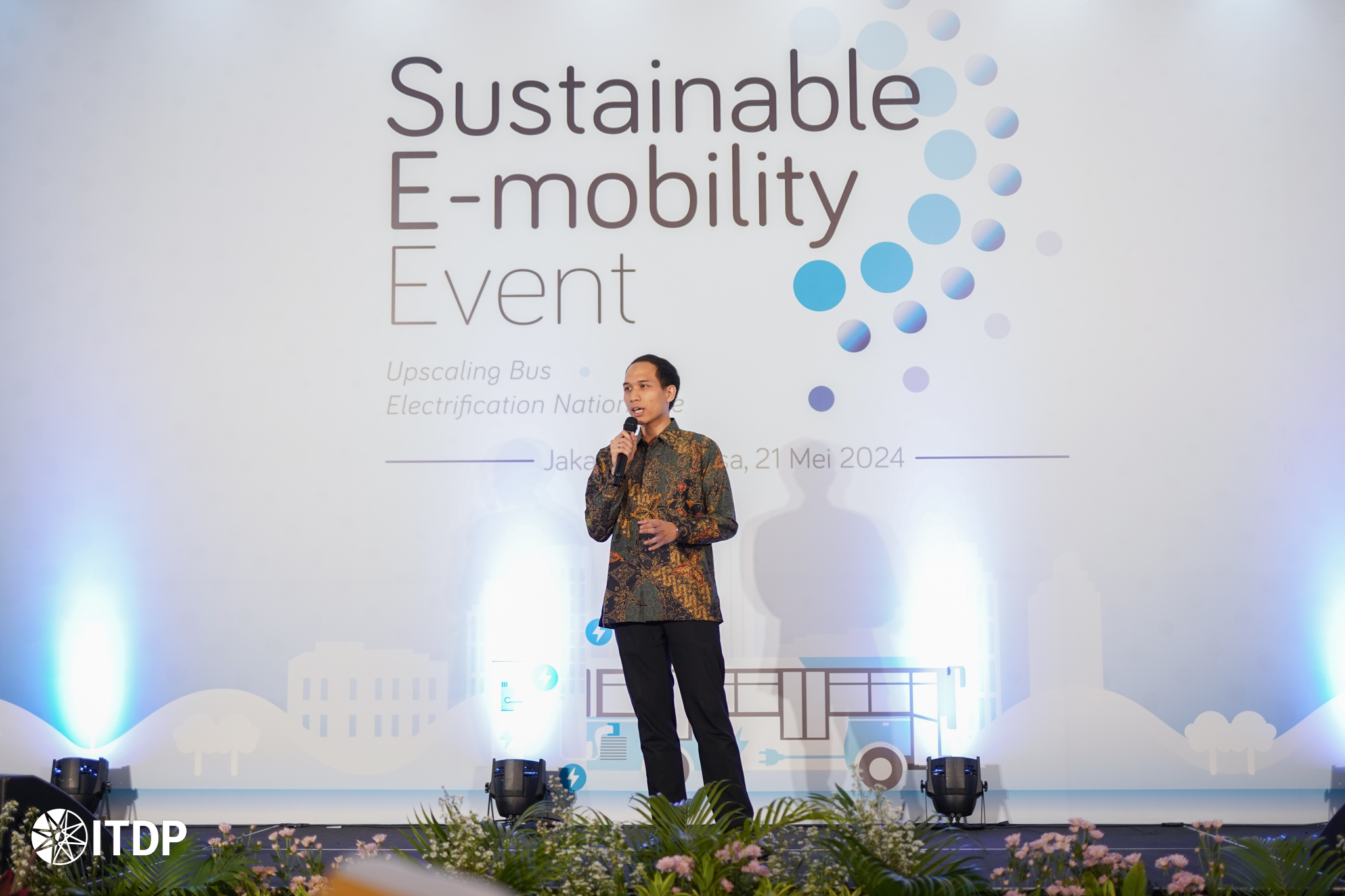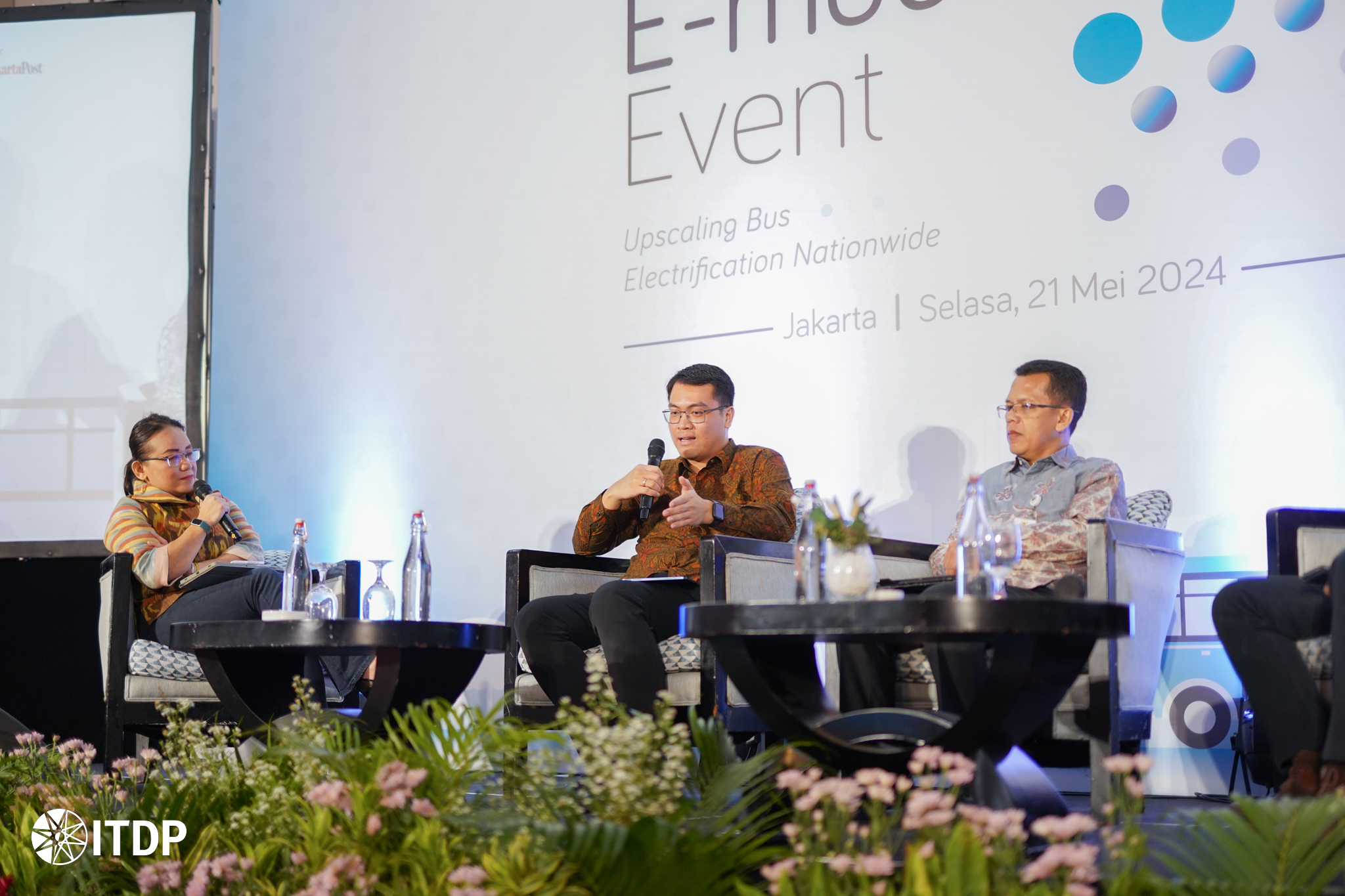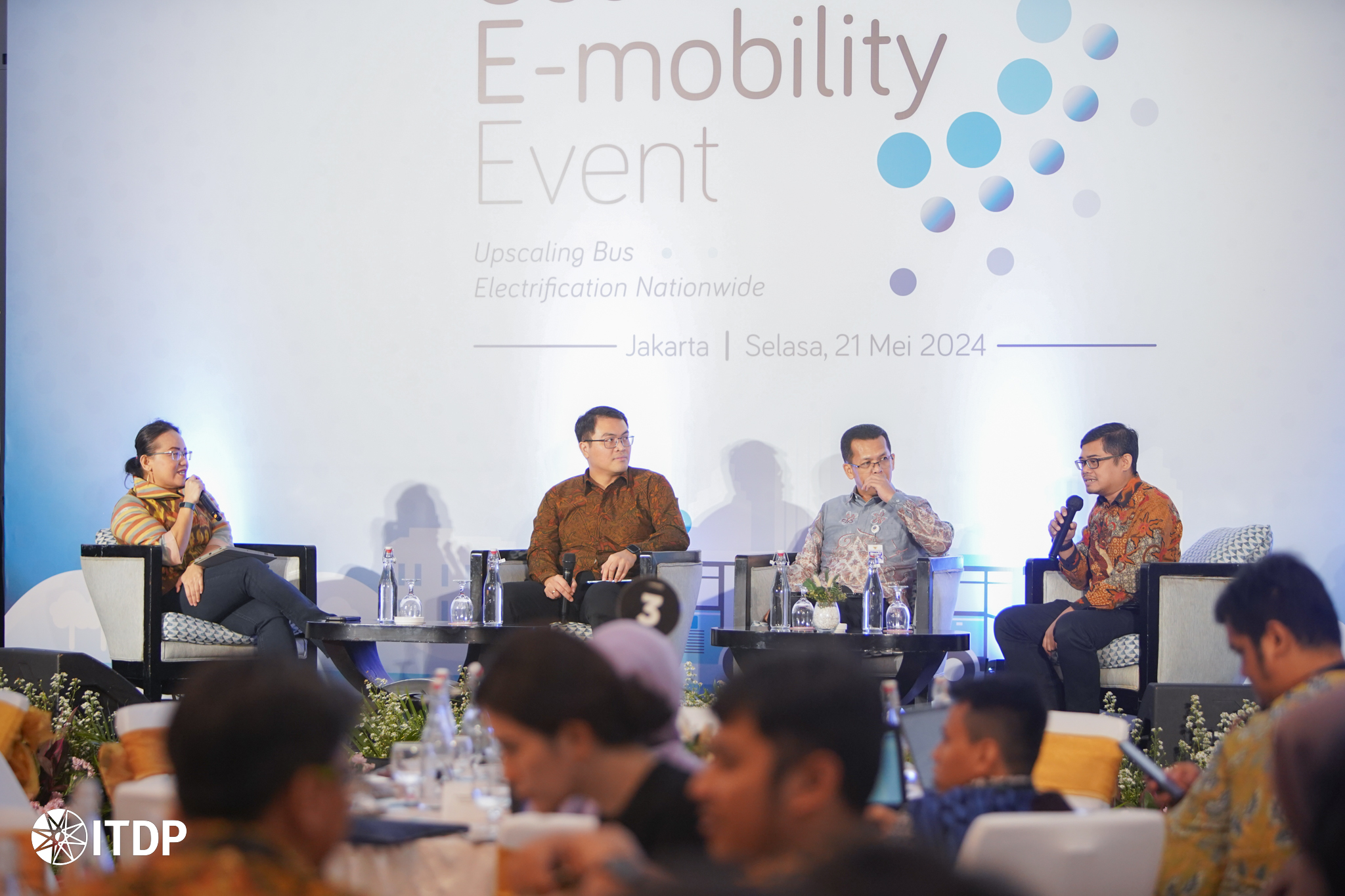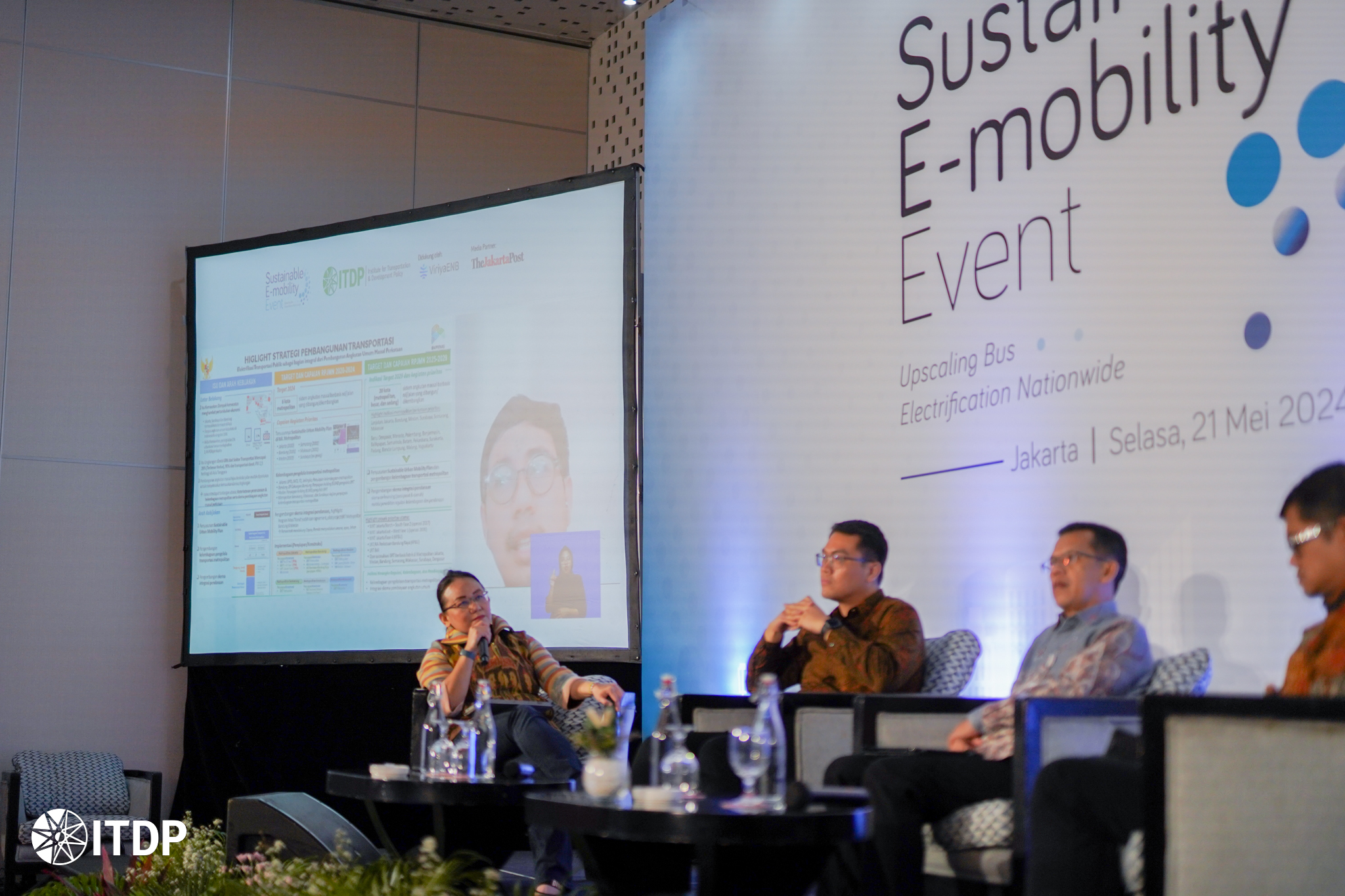May 22, 2024
ITDP Indonesia Launches National Roadmap and Incentive Program for Road-based Public Transport Electrification
The Importance of Urban Public Transportation Reform in Accelerating the Achievement of Electrification Targets
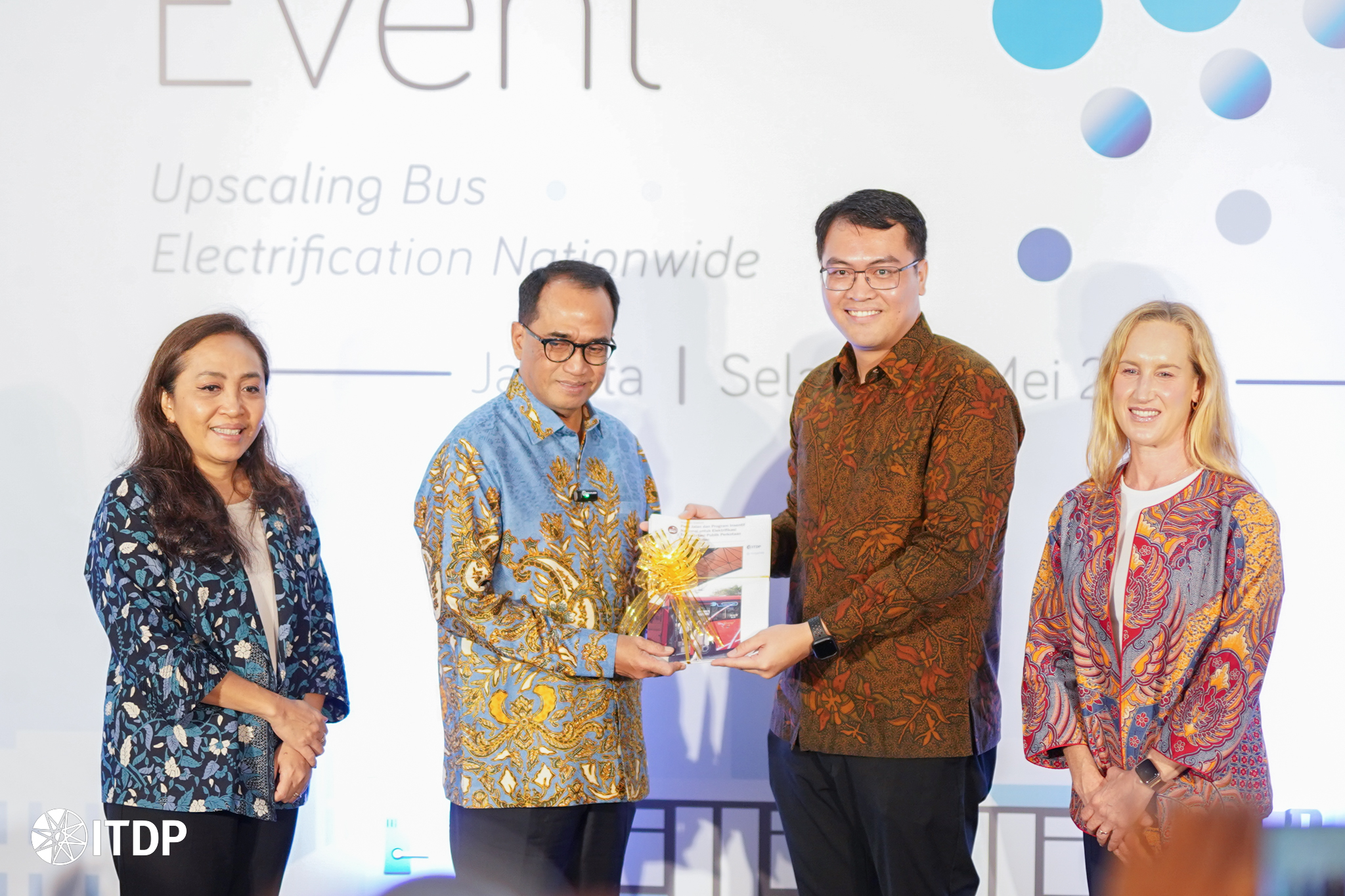
ITDP Indonesia, with the support of ViriyaENB, launched a study on the National Roadmap and Incentive Program for Road-based Public Transport Electrification at the “Sustainable E-Mobility: Upscaling Bus Electrification Nationwide” event to support the achievement of the public transportation electrification target by the Ministry of Transportation in 2030. The event took place at Le Meridien Hotel Jakarta on Tuesday (21/5), with participation from attendees representing multiple ministries, international development organizations, non-governmental bodies, and representatives from Transportation Agencies of Pekanbaru, Palembang, Surabaya, and Yogyakarta, as well as Bappeda Semarang.
The document was handed over by the Southeast Asia Director of ITDP, Gonggomtua Sitanggang, to the Minister of Transportation of the Republic of Indonesia, Budi Karya Sumadi. The handover was also witnessed by the CEO of ITDP, Heather Thompson, and ViriyaENB Executive Director, Suzanty Sitorus.
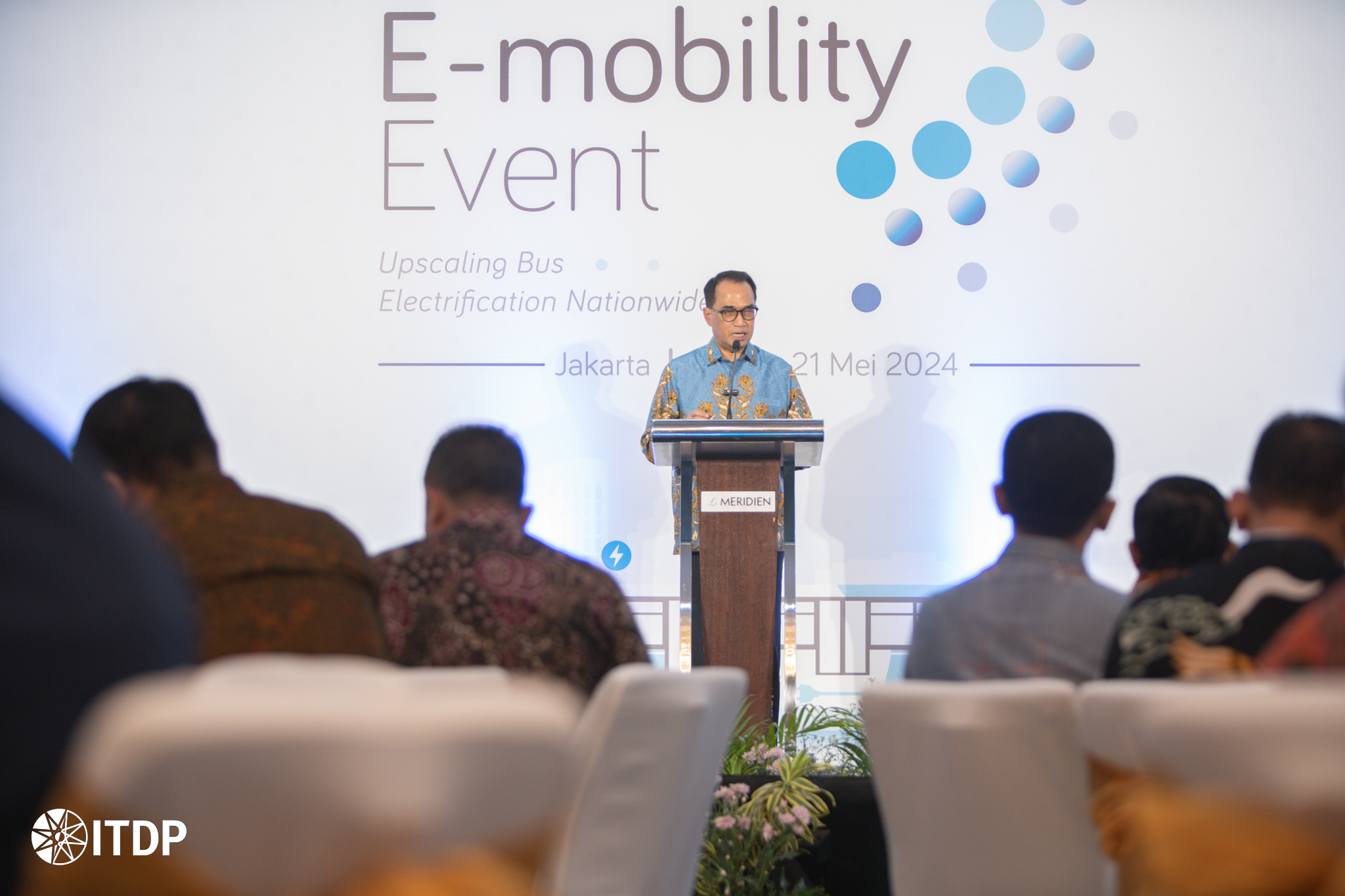
In response to the results of this study, Budi Karya Sumadi, the Minister of Transportation of the Republic of Indonesia, gave a positive response and considered it very useful in accelerating the development of infrastructure and regulations to support the electrification of public transportation. “This is not only a step forward for transportation but also for a better quality of life for society as a whole,” he said.
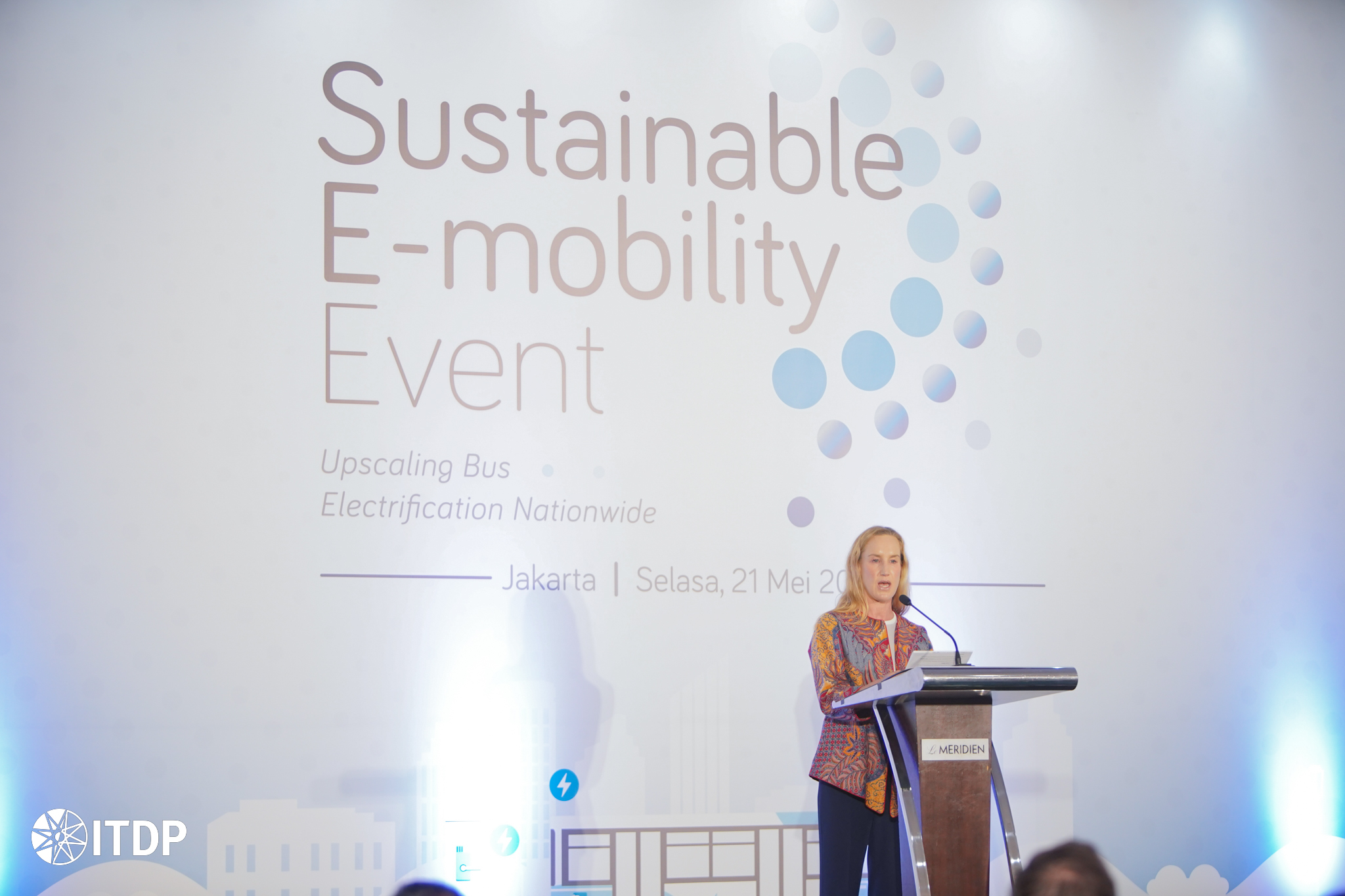
In her opening remarks, the CEO of ITDP, Heather Thompson, emphasized that with the electrification of public transportation, ITDP is committed to improving the quality of life of more than 27 million residents in 11 metropolitan areas. “Our study focuses on improving air quality and reducing noise pollution through public transport electrification, which will greatly enhance the quality of life for over 27 million residents in 11 metropolitan areas, fostering healthier and more vibrant communities,” she explained.
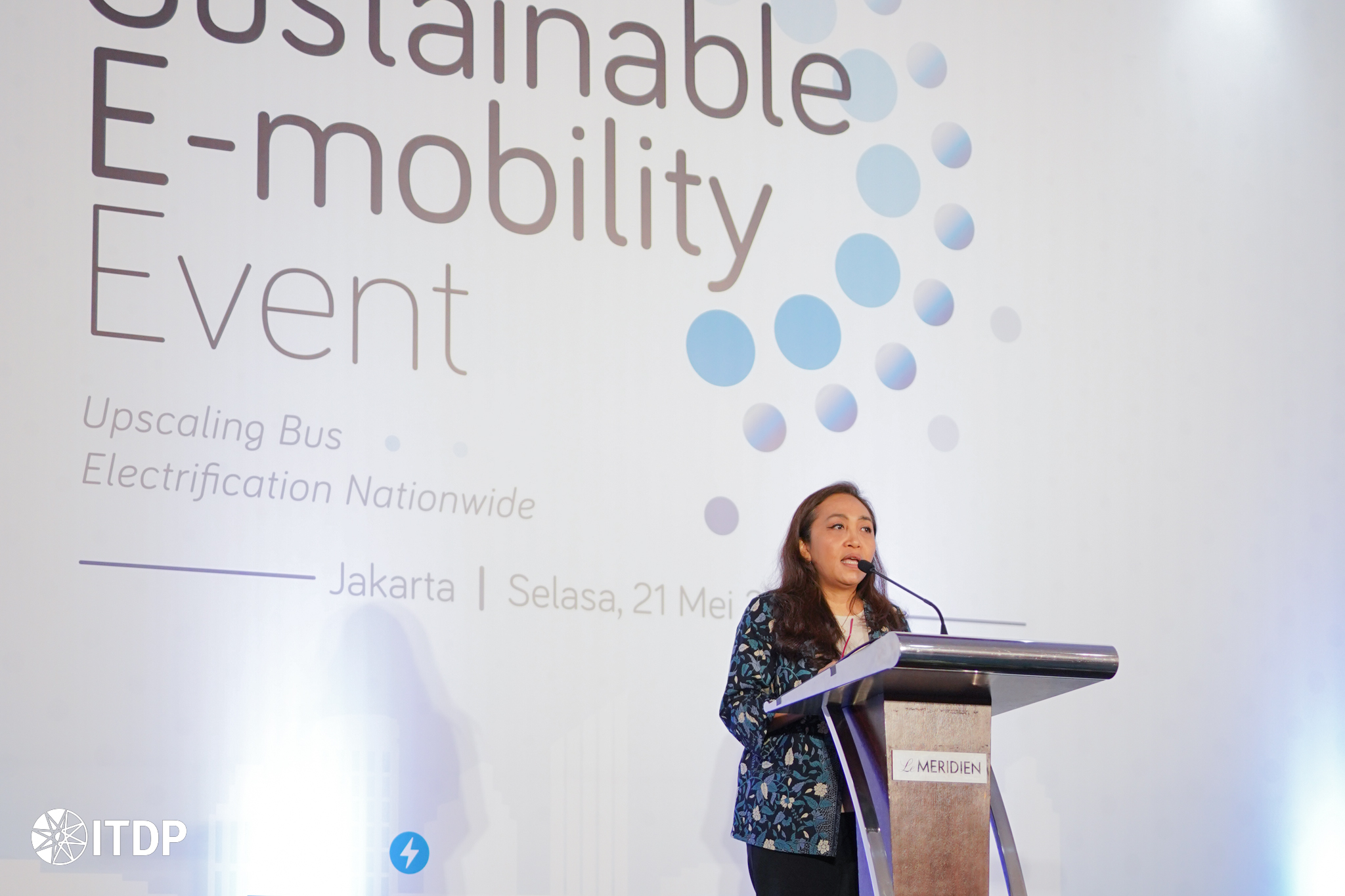
ViriyaENB Executive Director Suzanty Sitorus, in her opening remarks, hoped that the results of the partnership between ViriyaENB and ITDP Indonesia can accelerate the achievement of the Ministry of Transportation’s target to electrify 90% of urban public transport by 2030. “I also hope that the recommendations in this study can be integrated into the 2025-2029 RPJMN (The National Medium-Term Development Plan), ensuring implementation and budget allocation while addressing the various obstacles to the nationwide electric buses deployment as identified.”
The “National Roadmap and Incentive Program for Road-based Public Transport Electrification” study by ITDP Indonesia identifies the low commitment of local governments on urban public transport implementation and the high initial investment costs for adopting Battery Electric Vehicles (BEV) as the main challenges in public transport electrification.
To help achieve the national public transport electrification target, this study recommends that the Ministry of Transportation adopt 6.600 units of electric buses starting in 11 priority cities (Jakarta, Semarang, Pekanbaru, Batam, Medan, Bandung, Surabaya, Denpasar, Yogyakarta, Bogor, and Padang), which could potentially reduce greenhouse gas (GHG) emissions by 25% from Business-as-Usual conditions or equivalent to 1 million tCO2eq.
The study also mentions the recommendation of an incentive program to reduce the high purchase price of electric buses and encourage public transport operators to switch to electric buses. This incentive program is implemented to stimulate the quick and increased adoption of electric buses. The use of electric buses resulting from this incentive program needs regular monitoring and evaluation by the Ministry of Transportation and the Ministry of Industry to ensure the incentives are well-targeted.
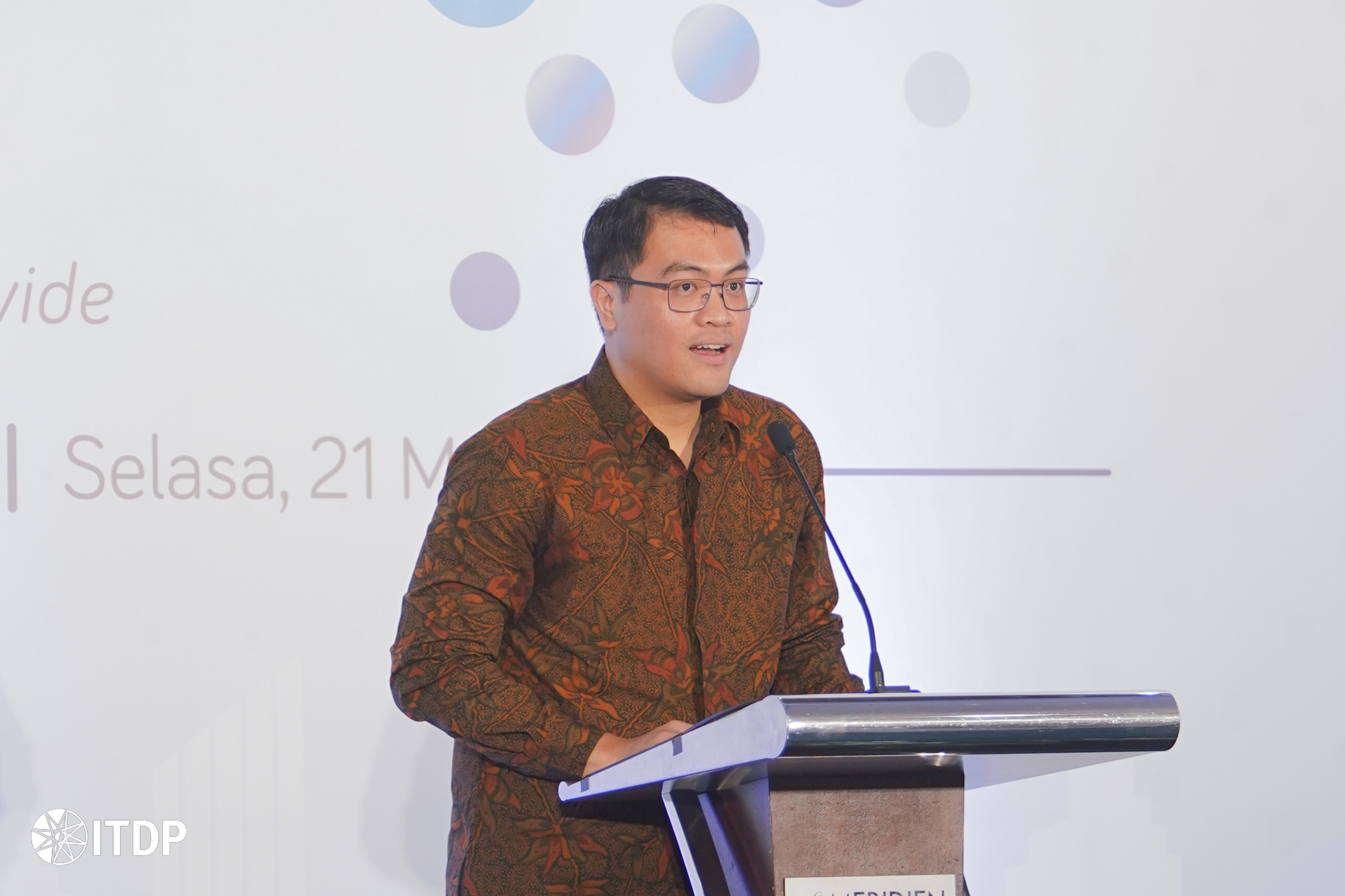
In addition to fiscal incentives, Gonggomtua Sitanggang revealed that non-fiscal interventions impacting fiscal matters also need to be implemented to reduce capital costs, for example, through consolidated procurement of electric buses and increased supply of electric bus fleets through the Bus-as-a-Service scheme (leasing).
ITDP Indonesia also introduced the Bus Electrification Dynamic Planning Toolkit. The toolkit is designed to assist the central government, local governments, and decision-makers in estimating the number of e-bus fleets required, charging facilities, investment costs, benefit-cost ratios, greenhouse gas emissions reduction, air pollution reduction, and estimation of required fiscal incentives. The toolkit can also help local governments identify their readiness to electrify the public transportation system in their respective cities.
The “Sustainable E-Mobility Event: Upscaling Bus Electrification Nationwide” concluded with a panel discussion session addressing the potential action plans as a follow-up to the study “National Roadmap and Incentive Program for Road-based Public Transport Electrification,” which can be undertaken by various policymakers. This discussion session was moderated by Maggie Tiojakin, President and Chief Revenue Officer of The Jakarta Post, with Gonggomtua Sitanggang, Southeast Asia Director of ITDP; Arianto Wibowo, Head of the Manufacturing Industry and Electric Vehicle Division at the Coordinating Ministry for Maritime Affairs and Investment; Iman Sukandar, Head of the Sub-Directorate of Urban Transportation, Directorate of Road Transport, Directorate General of Land Transportation at the Ministry of Transportation; and Akhmad Fais Fauzi, Senior Staff of Urban Transportation at Bappenas, as panelists.


